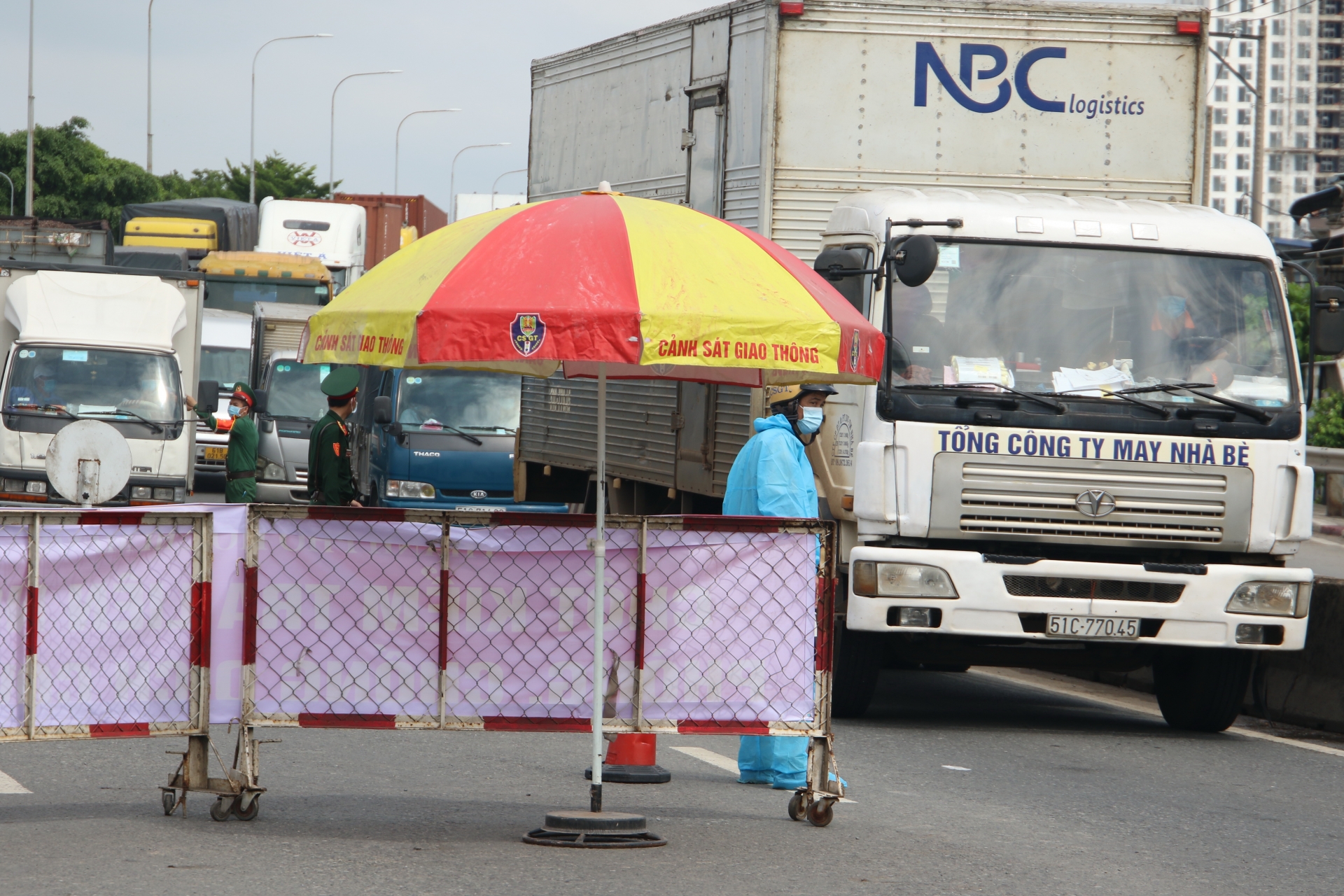Detailed strengthened Directive 16 in Ho Chi Minh City
 |
| Ho Chi Minh City extended social distancing measures until August 1. Photo: Le Toan |
The objective of strengthening Directive 16 is to blockade high-risk areas to control the spread of the virus as well as maintain and expand safe zones.
Regarding production and business activities, it requires the suspension of non-urgent construction works.
Banks and securities companies can maintain sufficient capacity in order to provide necessary services. Especially, branches or transaction offices, which can operate alternately, can arrange staff to work on-site but strictly maintain a safe distance.
Only businesses providing essential services in healthcare, pharmaceuticals, food services, electricity, water, gas, post and telecommunications, public sanitation, transportation of essential goods, funeral services, and other essential services regulated by competent authorities may operate.
Other manufacturing enterprises are only allowed to operate on the condition that they ensure safety and strictly adhere to the principles of "three on the spot" or "one route, two destinations". Those that do not meet the requirements of epidemic prevention and control will be required to stop immediately, with violations severely punished.
Traditional wet markets are only allowed to operate under a new model with strict regulations and controls while ensuring an open, airy space with a barrier between buyers and sellers. They will also need to list prices and will only be allow to trade in foodstuffs and essential goods. Business households will have to operate alternately on even and odd days to minimise the number of people interacting.
Checkpoints will only allow through official vehicles such as vehicles of state agencies, armed forces, epidemic prevention and control service, or vehicles for public service such as buses and goods transport vehicles with identification codes (QR codes).
Meanwhile residents are required to thoroughly implement "person-to-person, family-to-family isolation" in blockade areas. People are only allowed to leave houses in case of a medical emergency to to buy essential food. Notably, buying food is asked to be made twice a week with vouchers issued by local authorities.
In high-risk areas, isolation areas and households with cases of F0 and F1 must remain in isolation and cannot leave the house except in case of medical emergencies. Food and essentials will be delivered to them by the government.
What the stars mean:
★ Poor ★ ★ Promising ★★★ Good ★★★★ Very good ★★★★★ Exceptional
Related Contents
Latest News
More News
- Vietnamese businesses diversify amid global trade shifts (February 03, 2026 | 17:18)
- Consumer finance sector posts sharp profit growth (February 03, 2026 | 13:05)
- Vietnam and US to launch sixth trade negotiation round (January 30, 2026 | 15:19)
- NAB Innovation Centre underscores Vietnam’s appeal for tech investment (January 30, 2026 | 11:16)
- Vietnam moves towards market-based fuel management with E10 rollout (January 30, 2026 | 11:10)
- Vietnam startup funding enters a period of capital reset (January 30, 2026 | 11:06)
- Vietnam strengthens public debt management with World Bank and IMF (January 30, 2026 | 11:00)
- PM inspects APEC 2027 project progress in An Giang province (January 29, 2026 | 09:00)
- Vietnam among the world’s top 15 trading nations (January 28, 2026 | 17:12)
- Vietnam accelerates preparations for arbitration centre linked to new financial hub (January 28, 2026 | 17:09)

 Tag:
Tag:




















 Mobile Version
Mobile Version